- Home
- Al Sarrantonio
Cold Night (Jack Paine Mysteries)
Cold Night (Jack Paine Mysteries) Read online
COLD NIGHT
Al Sarrantonio
Digital Edition published by Crossroad Press
© 2011 / Al Sarrantonio
Copy-edited by: Patricia Lee Macomber
Cover Design By: David Dodd
LICENSE NOTES
This eBook is licensed for your personal enjoyment only. This eBook may not be re-sold or given away to other people. If you would like to share this book with another person, please purchase an additional copy for each person you share it with. If you're reading this book and did not purchase it, or it was not purchased for your use only, then you should return to the vendor of your choice and purchase your own copy. Thank you for respecting the hard work of this author.
OTHER CROSSROAD PRESS BOOKS BY AL SARRANTONIO:
Novels:
Campbell Wood
Haydn of Mars – Book I of the Masters of Mars Trilogy
House Haunted
Kitt Peak
Moonbane
October
Queen of Mars – Book III of the Masters of Mars Trilogy
Sebastian of Mars – Book II of the Masters of Mars Trilogy
Skeletons
Summer Cool
Tales From the Crossroad, Vol 1
The Boy With Penny Eyes
The Masters of Mars – The Complete Trilogy
The Worms
Totentanz
West Texas
Collections:
Toybox
Hornets & Others
Halloween & Other Seasons
Unabridged Audiobooks:
Moonbane – Narrated by Kevin Readdean
Buy Direct From Crossroad Press & Save
Try any title from CROSSROAD PRESS – use the Coupon Code FIRSTBOOK for a one-time 20% savings! We have a wide variety of eBook and Audiobook titles available.
Find us at: http://store.crossroadpress.com
For
Joanne Martin and Mary Ellen Kovalchik
Two of the Good Ones
There is the heat of day,
And then there is cold night.
—Otto Stiegler
One
Someone on the other end of the phone said, "Barker Agency?"
"Yes."
"Who's this?"
"Paine."
"You'll do. I want you to go to the Mallard Hotel and ask at the desk for a letter addressed to Mr. Johnson from Mr. Grumbach. I'm Grumbach. You'll be Johnson. The letter will tell you what has to be done. There are five one-hundred-dollar bills in the envelope along with the letter. That's your payment. There won't be anything but a verbal contract on this, but I'm assuming I can trust you to do what the letter says."
"My boss won't let me work without a written contract," Paine said.
"You'll have to," Grumbach said.
"Why?"
"I'm going to hang myself."
"Mr. Grumbach?" Paine said, but then he heard what sounded like the tap of a phone being laid on a table and then the scrape and fall of a chair. He heard a single strangled cry, and then a terrible gasping, and then he heard what he imagined to be the man's feet kicking the phone from its table. He heard the loud bang of a phone receiver hitting the floor, and then silence.
"Mr. Grumbach?" Paine said evenly into the phone. There was no answer.
Paine's hand was trembling.
"Oh, Jesus," he said.
TWO
The front lawn was a golf course without holes in it. Paine stepped out of his car and across the driveway onto the lawn until a scowl from the gardener working in a picture-perfect rock garden with miniature roses and tulips made him hop off it onto a flagstone path.
The bell rang once, deep inside the house. The door opened almost immediately, showing an expanse of marble floor as long and nearly as wide as the front lawn. There seemed to be no one holding the door, but when Paine walked in, a maid stepped from behind the door in front of him, blocking his way.
"To the left," she said, making it clear that the rest of the house was not anywhere he was allowed to go.
He went into a room with nothing in it a lighter shade than dark green. The wooden shutters were closed, but the little bars of light that got in from the brilliant sun outside showed him a typical man's room: trophies, a television three feet diagonal or so, a leather-padded bar, leather chairs. He was peering closely in the dim light at one of the rifles mounted on the wall, a .30-06, when an amber light went on behind him, pushing the room into twilight, and the girl who had agreed to see him walked in.
"We're all good shots in this family," she said to the rifle, and then she said to Paine, "I'm Dolores Grumbach."
He saw that he was supposed to cross the room to meet her at the door, so he stayed where he was. Something flashed across her eyes for a moment, something that made the room almost bright, but then it disappeared and a trace of smile came onto her face. She was all of nineteen, Paine thought, but the smile was a tired one.
"You have something to show me?" she said. "You said on the phone you had something from my father. If you don't mind I'd like you to give it to me and leave."
Paine said nothing.
She looked at him for a moment, and then she turned toward the bar and pulled a glass from a long neat line of them. Paine saw that her hand was shaking, ever so slightly. With practiced ease she uncapped a decanter and poured just enough whiskey into the glass to make the ice she added sparkle with the same amber color as the room.
"Would you like a drink, Mr. Paine?" she said, not turning around.
"No," Paine said.
"Can I make you one, anyway?"
"If you like."
She repeated the smooth motions with the glass, liquor and ice and then she turned to him, waiting again for him to come to her. This time he did, reaching out to take the glass. Her fingers touched his hand, and they were as cold and wet as the glass. Her nails were short and uneven. She left the glass in his hand and lowered herself onto one of the padded barstools.
"To you, Mr. Paine," she said mirthlessly, and she downed the whiskey in a smooth motion.
Paine held the glass in his hand. He felt the ice melt inside it. A long minute passed. Dolores Grumbach did not look at him. Finally, she put the glass down on the bar, the violence of the motion dulled by the leather padding.
"Did you see him before anyone else did?" she asked.
"No. I called the police and let them do that. I went up with them, but I didn't go in first and when I did go in, there was nothing for me to see. He didn't leave a note in the room. There was nothing on him but his wallet."
"Was it an awful place?"
"Yes, it was," Paine said. "A garbage hotel. He had a room with a single bulb in it, with no washstand, no blanket on the bed, dirty floor, water marks on the walls. It smelled bad."
"We buried him this morning." She stared somewhere far off.
"Miss Grumbach," Paine said, "I don't think your father killed himself."
She came back from where she had been. "Tell me what you mean," she said. Her eyes were flat brown in her face.
"What do you think about it?" Paine asked.
"I think," she said, "that he killed himself."
"Why?"
She laughed hollowly. "Because that's what I choose to believe."
Paine looked at her, but she said nothing.
"What is it you wanted?" she asked him.
Paine reached into his pocket and brought out an envelope. The name "Mr. Johnson" was scribbled across the front. He handed it to her.
"Is that your father's handwriting?"
"It is," she said.
"Are you sure?"
Her eyes didn't look at the envelope again.
"Look inside."
She slipped her hand into the envelope and brought out five new one-hundred-dollar bills and three black-and-white glossy photographs. She put the hundred-dollar bills on the bar behind her, not looking at them, and then she looked at the photographs casually, one after the other. They were copy prints of old photos: two showed a couple each, a smiling man and woman next to a new car and in the other an older man and woman, she smiling slightly, the man frowning. There was what looked like a horse in the background, and a fuzzy field bordered by eucalyptus trees sloping up to the horizon. The third photo was of a man only, in a suit and tie; it looked like the kind of thing corporations put in their newsletters when someone gets promoted, the head turned slightly to one side, face set, mouth in a half-serious smile.
She finished with the photographs and put them back in the envelope and handed the envelope to Paine.
"Who are they?" she asked him.
"I thought you might tell me that."
"I don't think I want to."
"Would you look at them again? Closely this time."
"I saw them," she said. "I don't want to know any of those people."
"All right," Paine said, half to himself. The girl was refilling her glass.
"Want another drink?" she asked.
"No," he said, looking at the untouched one in his hand. She sat facing the bar, away from him.
"Miss Grumbach," he said, "your father hired me, over the phone, just before he died. He told me my instructions would be inside the envelope you're holding, and that I would find it under the name 'Johnson' at the Mallard Hotel. There's no note in there, only those photographs. The truth is, I'm not allowed to work for anyone without a written, signed contract between the client and the Barker Agency, for whom I work. Your father died before he signed that contract. Now the only way I can continue with this is if someone else—"
"I'll think about it," she said from her faraway place. She took the five hundred-dollar bills from the bar and slid them back into the envelope, handing it back to him. "I assume this money was to be your payment. Keep it. Give me your contract if you want."
Paine gave her the folded contract from his inside jacket pocket. He saw that her glass was empty. She rose from the barstool, steadily, and began to walk to the doorway.
"Find out whatever you want," she said.
"You told me he killed himself."
"I said that's what I wanted to think," she said. "We all want a lot of things, Mr. Paine."
"I'll need—"
"I'll think about it. I'm tired. I'm going to bathe."
She left the room. She turned out the amber light, and Paine was left in semidarkness. Though it was dark and cool in the room he could sense the heat outside; the thin slats of light that fell into the room were bright against the leather chairs they settled on. He put the envelope back into his pocket and made his way to the door.
As he stepped out, there were voices in the hallway. Approaching him was a fuller, healthier, slightly older version of Dolores Grumbach. She wore tennis shorts, and her hair was cut boyishly short. Paine saw a man, shorthaired, healthy-looking, dressed also in tennis whites, mounting the marble steps at the end of the hallway.
"You must be Mr. Paine?" the woman said. She held out a long slim hand. "I'm Dolores's sister, Rebecca Meyer."
Paine took her hand; she curled her fingers around his, holding them an instant too long.
"I hope you didn't find my sister too full of ennui," she said, smiling slightly. "Part of it's an act."
"Part?" Paine said.
She kept her eyes on him, and then they suddenly wrinkled up at the corners and she asked, smiling, "Would you like a drink?"
"I was already offered one, thanks," he said. He took out the envelope again, removing the three photographs. "Would you mind telling me if you know any of these people?"
She took the photographs from him and concentrated on each one. She shook her head. "I'm sorry, no." She handed them back. "Won't you please have that drink?"
She put a hand on his arm and Paine felt a tingle where her fingers rested.
Paine put the photos away.
"I really have to go."
"Maybe next time, then."
"Maybe next time."
He went to the front door and the maid was there, holding it open. Then suddenly he was outside, in the bright sun, feeling the gardener's eyes keeping him on the flagstone walk until he got to his car.
THREE
Jimmy Carnaseca was building something on his desk. "What the hell is that?" Paine asked.
Jimmy kept his eyes on the thing on his desk, but his mouth turned up into a delighted grin. "Something I picked up on the way in." He was fitting tiny sticks together, little bigger than toothpicks, perfectly slotted on each end so that they fit together without falling apart. It crowded out half the desktop; the telephone had been moved and there were papers restacked on one side, in a rough pile away from the construction.
"Looks like a bridge," Paine said, sitting down in the desk chair and swiveling it away from Jimmy.
"Something like that. You'll see when it's done."
"Barker in?"
Jimmy frowned. "Not yet."
"Good."
"You'd better watch out," Jimmy said. "He'll chew your ass off, spit it out the window."
"He wouldn't know where to chew."
Jimmy continued with his tinkering, until Paine asked, "Coffee boy been by yet?"
"That's good, too."
"What's eating you?" Jimmy said, stopping his work. He stood as straight as his small, bent frame would let him. He stared unblinking at Paine, a tiny wooden girder held delicately in his fingers.
"You should have been a surgeon, Jimmy," Paine said.
Jimmy said, "I asked you what's eating you."
"Nothing much. Coffee boy been by yet?"
Jimmy stared at him.
"Sorry, Jimmy," Paine said.
Carnaseca regarded him dispassionately for a moment. "What is it, Jack?"
Paine said nothing. Then he said, "Lots of things, Jimmy."
"Love trouble?"
Paine looked at him. "I suppose that's part of it."
"You should do like I do," Carnaseca said. He began to work again, humming to himself.
"And what do you do?" Paine found himself smiling. Jimmy kept humming. He shook his head, a grin splitting his face.
"I ought to knock this thing down . . ." Paine threatened, holding his fist playfully over Carnaseca's model.
"Bastard," Jimmy said.
There was a banging out in the hallway. Paine cursed. "Speaking of bastards," he said.
He wheeled the chair away from the doorway as someone large walked past. There came a loud noise at the other end of the hall, a door opening and then slamming shut. They heard papers being scattered about, and then another figure, a thin, pretty woman, hurried by with a stack of papers in her hands. She moved with an odd limp. A moment later they heard the door at the end of the hall squeaking open and then shutting again.
A voice roared, words not discernible.
"Shitbag," Paine said.
"I think I heard the coffee boy," Jimmy said, laying the sticks of wood in his hand down and putting all the strays into a box which he carefully closed, hiding the cover under a stack of papers. He pointed to the wooden construction. "Don't mess that up, you louse. Want anything?"
"No," Paine said.
Paine got up and went to his own office. He didn't want to open the door; he wanted to go back to Jimmy's chair and sit where there was light and books on the walls and a little sun coming through. Jimmy even had a personal file; it was in the middle drawer of his file cabinet in a blue hanging folder. "Anything ever happens to me," Jimmy had told him once, grinning, "it's all there. You can read it if you want." Paine had no personal file in his office. It was all in his head, and he didn't want anyone to read it. He didn't want to read it himself. He felt a cold draft t
hrough the darkened glass pane of the door that didn't have his name stenciled on it.
He turned the knob and went in.
The light went on, but it was as dark in the room as it had been in Morris Grumbach's study. A tomb, Paine thought. He almost felt a touch on his hand as he released the light switch but it was only a movement of cold air over his knuckles, from the ventilator duct overhead.
The telephone was a black glossy shape on a gray-topped, empty desk that didn't even have a blotter on it. The chair was tilted back at an unnatural angle, the padding torn through, part of it pulled out. Jimmy had told him that Barker had deliberately taken that chair out of storage and put it in his room so that he would have to sit on it.
He sat on the edge of the desk, taking in the stacks of files on top of overstuffed cabinets; the venetian blinds jammed in a closed position, a quarter inch of dust settled like dirty snow across the strips of white aluminum; the fan overhead that didn't work; the cracks in the ceiling, some of which led down the walls to hit the floor in a spread of tributaries.
Nice life you've got here, Paine thought.
A tomb.
His hand dangled over the phone, fell on it, turned the receiver aside and started to dial a number. His hand stopped, put the receiver down and then picked it up again, with more determination.
"Jack?" someone asked quietly from the door, knocking politely and then opening it.
The phone fell back into the cradle.
"What is it, Margie?" Paine asked.
"He wants to see you."
She wore her perpetual hurt look. Paine had noticed her limp before, but now he saw that she wore a baggy kind of dress that fell nearly to the floor. Jimmy had told him what her legs looked like under that dress, how smooth and white one of them was, how twisted and mangled the other was.
"What does he want, Margie?"
Her pinched look stayed.

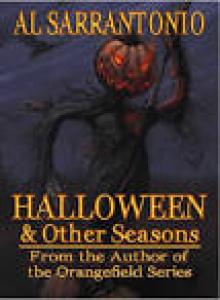 Five World Saga 01 Hornets and Others
Five World Saga 01 Hornets and Others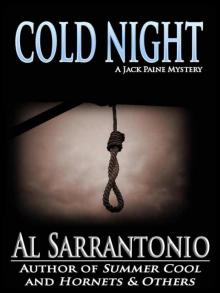 Cold Night (Jack Paine Mysteries)
Cold Night (Jack Paine Mysteries)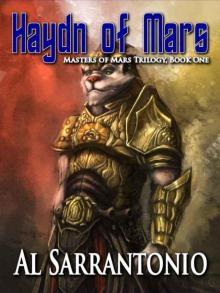 Haydn of Mars
Haydn of Mars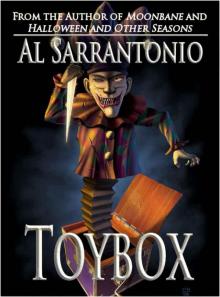 Toybox
Toybox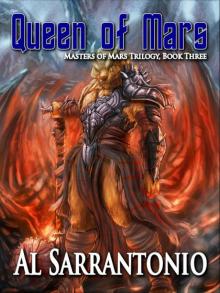 Queen of Mars - Book III in the Masters of Mars Trilogy
Queen of Mars - Book III in the Masters of Mars Trilogy Exile
Exile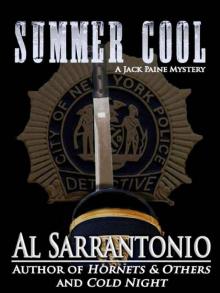 Summer Cool - A Jack Paine Mystery (Jack Paine Mysteries)
Summer Cool - A Jack Paine Mystery (Jack Paine Mysteries)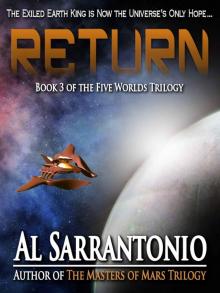 Return - Book III of the Five Worlds Trilogy
Return - Book III of the Five Worlds Trilogy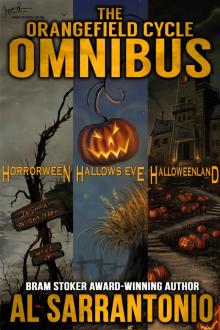 The Orangefield Cycle Omnibus
The Orangefield Cycle Omnibus Summer Cool jp-2
Summer Cool jp-2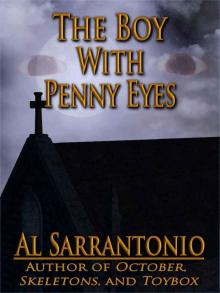 The Boy With Penny Eyes
The Boy With Penny Eyes Journey - Book II of the Five Worlds Trilogy
Journey - Book II of the Five Worlds Trilogy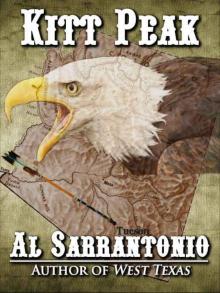 Kitt Peak
Kitt Peak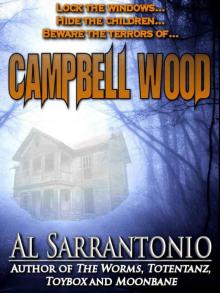 Campbell Wood
Campbell Wood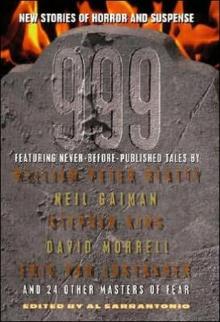 999
999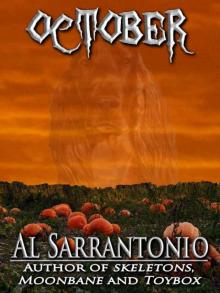 October
October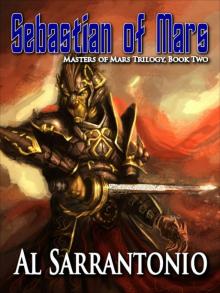 Sebastian of Mars
Sebastian of Mars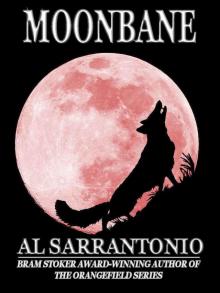 Moonbane
Moonbane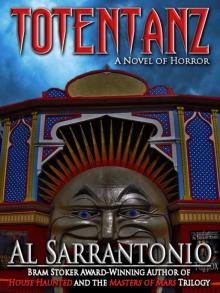 Totentanz
Totentanz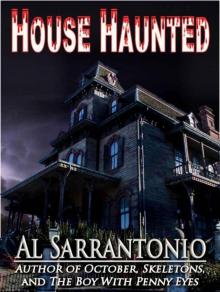 House Haunted
House Haunted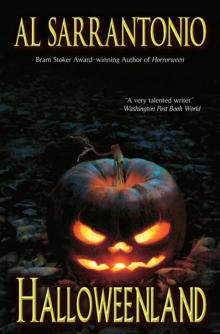 Halloweenland
Halloweenland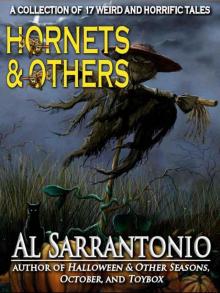 Hornets and Others
Hornets and Others